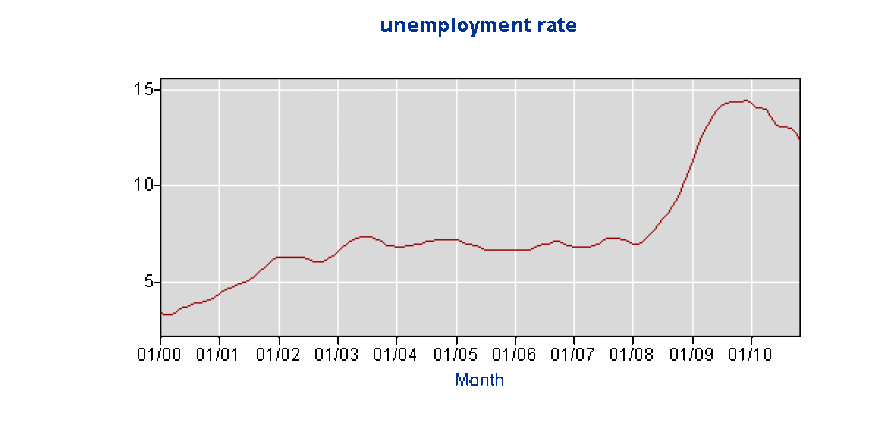Michigan and several other states have had to borrow money from the federal government to pay for unemployment benefits. And now, the federal government wants states to repay.
Unemployment benefits are funded by Michigan businesses through a payroll tax. When the recession caused the state’s unemployment rate to skyrocket (as high as 15% at one point), the state had to borrow more than $3.8 billion to pay jobless benefits.
Rich Studley is with the Michigan Chamber of Commerce. He says Michigan businesses will get hit with a fee to help pay back what they owe:
“The federal law requires that we begin to repay the 3.8 billion dollars that we borrowed and that means that later this year and again next year employers will start to see payroll taxes increased to repay that debt.”
Studley says the first round of tax and fee increases will happen this year, "then they'll increase steadily in 2012, 2013 and thereafter until the debt is paid. Studley says fees will vary from company to company, depending on how much the companies paid into the system and how many employees they had to lay off.
Here's an outline of the tax and fee increases taken from the Michigan Chamber of Commerce's website:
Without federal relief, current federal and state law require the imposition of two additional taxes when there is an outstanding loan balance: 1. FUTA Increase. Federal law triggers an increase in the Federal Unemployment Tax Act (FUTA) rate to raise funds to retire the principal of the debt. Click here for further information from the Unemployement Insurance Agency (UIA). 2. Solvency Tax. State law imposes a Solvency Tax to raise revenue to assist in paying the interest costs on the debt. The federal stimulus bill (ARRA) waived interest payments and the accrual of interest on advances to the State Unemployment Trust Fund through December, 31, 2010. The Legislature subsequently moved to “de-trigger” the $67.50 per employee “solvency tax” on negative balance employers that was set to take effect in January of 2009. Unless Congress acts to further extend the interest waiver period, the solvency tax on negative-balance employers will automatically re-trigger when the interest waiver period expires on December 31, 2010. These tax revenues will need to be remitted to the federal government in September of 2011. Click here for further information from the UIA.



